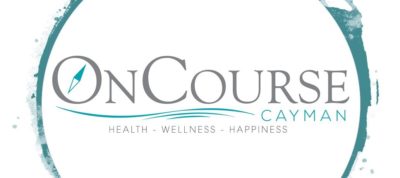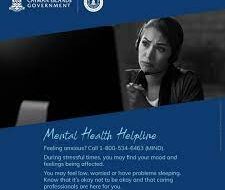
Do I need therapy?
People come in for therapy for many reasons, it may be that you have been feeling more sad, angry or stressed out than normal and feel that it would be helpful to have someone to talk to about what’s going on and get some additional support and ideas for making some changes. You may feel that your work is slipping, you are having a hard time staying on top of things, just not feeling yourself or that things are okay but you want more from your life.
We work with persons, children, teenagers and adults, for many different reasons, from disturbances in mood (sadness/depression, stress/anxiety, anger and irritability), to changes in behaviors (eg: difficulties sleeping, substance use or other compulsive behaviors), persons who have experienced something traumatic (accidents, assaults, abuse) to persons who are just having some difficulties adjusting to or trying to make changes in their lives (eg: job loss, new job, loss of a loved one, divorce/separation, conflicts in relationships, difficulties building relationships). I also work with persons with more difficult concerns (eg: psychosis, bipolar disorder).
This question can even be the focus of our first session – what is going on, if therapy may be right for you, and what we would expect our work together to look like.
What is therapy?
Therapy, most simply, is a relationship with a professional that focuses on helping you to understand yourself, to grow and to achieve goals that are important to you. We work on everything from adjusting to changes in your life (i.e.: job loss, divorce), to improving relationships to managing anxiety/depression/reactions to trauma etc. Therapy these days often looks a bit different than what still appears in movies. We no longer have you lay on a couch and talk freely for an hour about what comes to mind first (some of us still work this way, but we don’t, we use CBT). Instead we tend to take a more active, collaborative approach. We believe that you know yourself best and will utilize that knowledge to tailor our plan to build skills and make changes in your life as we work towards our goals.
It is just talk therapy, we do not prescribe medications, but we can work with your physician or psychiatrist to ensure that our treatments are complimentary and working towards the same goals. With therapy, it can be nice and helpful to have a safe place to talk about what is going on in your life but it can also be uncomfortable at times as we explore things that have happened to you and patterns in your behavior. This discomfort is often an opportunity for growth but for this reason, it is important that you are comfortable with me and able to trust me as we go on this journey together.
Please look to How do I find the right therapist, What is Cognitive Behavioral Therapy, and What About Medications for more info.
How will therapy help me?
Therapy is helpful for several reasons. Have you ever noticed how when you say something out loud or you try to explain it to someone else it makes more sense or you start to feel better? This is one of the processes that contributes to therapy by allowing you to express and process emotions/situations/ideas. In a nutshell, it is a safe place for you to come and talk about what has been going on in your life with an objective third party who has no vested interest and legally cannot share it with anyone else (only exception is in the case that someone is in danger). Not only that, but this person will be likely be supportive and knowledgeable about such concerns and so can help you to figure out other ways of seeing and handling things (emotions, relationships, situations etc.). This is the core of most therapies, to allow you to share about what’s going on, but therapists will have different theoretical approaches that will affect what they then do with the information you share. We primarily use Cognitive Behavioral Therapy (CBT) which is present-focused and skill-focused so we will also be focusing on helping you understand your current difficulties and giving you tools to better manage and navigate them on your own. Through sharing your thoughts, feelings and experiences you will be able to better process your experiences and then we will use this to make changes to allow you to live a happier, more effective and more fulfilling life. The best part is, that these insights and tools will go with you so that you learn how to better help yourself in future, although we will still be here should additional questions or difficulties arise.
What will we talk about in therapy?
In therapy, we will be discussing information that is important to you, what has happened recently and following up on progress towards our goals. During one of our early sessions, we will set goals for what we will be working on in our time together. This will be something observable and measurable so that we are agreed as to how we will know when we have reached our goal as well as how we will be getting there. Our sessions then will primarily focus on the identified difficulties, follow up on homework assignments (through CBT therapy, we often come up with a plan for something to practice, try or change for the week in order to help us reach our goals more quickly), new ideas or skills and a plan for the next week. However, as we are all humans, sometimes life happens. Should other things come up, we can either shift focus or take these on as well as needed/preferred.
Why would I talk to someone about my personal concerns?
This is actually exactly why therapy is helpful. Family and friends are great for support, but the difficulty is that when we share with them/look for support/seek advice, there are ways that it can affect us later. They may judge us for feeling this way or having done that, they may pity us or they may encourage you to choose a certain option (whether consciously or unconsciously) because they know the person involved or have a vested interest in the outcome. Sometimes, we would just prefer to have another opinion to consider. A therapist is a professional that legally cannot discuss your issues with anyone else and who can provide a safe place for you to discuss all sides of a situation and help you figure out what it means and the best way to move forward. We offer an objective, third party perspective and can help you learn new ways of understanding and addressing difficult situations.
Cayman is a small community, so you may know of our therapists, and we may know people that you know. If this is the case, then we can discuss whether we may be the best person to help you or if there may be someone else who would be a better fit. It is important that we feel that we can appropriately and effectively work with you and that you are comfortable talking and sharing with us.
Can I bring someone with me? Is it better to come with someone or alone?
This is a matter of personal choice and can be anyone, from parents to other family members to friends. Some people would prefer to have someone that they know there with them to ease the stress of meeting someone new (i.e.: your therapist) and/or to help provide background information about what has been going on. Some people would prefer to come and see what it is about for themselves before getting others involved. It is up to you what you are most comfortable with. If you bring someone, we will check with you before we meet and likely at some point during the meeting as well to ensure that you are still comfortable and if you would like to have the person in/stay in with us. If they are unavailable at the first meeting or you prefer to come alone initially, we also have the option of having them join us in a later session.
When will I see you? How will we schedule?
Scheduling is different for everyone we work with and will be established collaboratively between you and your psychologist. Generally, we meet with people once a week at the beginning to establish a solid working relationship. As we get to know you and you learn about how you work and once we have begun to make some progress, we may discuss spreading out sessions to give you more of a chance to implement and develop changes that we are making. Similarly, if it seems that someone may need some more support, we may recommend meeting more often for a period of time.
What happens in the first session?
The first session will include an assessment and so will last between an hour and an hour and a half. After that, you will meet with your therapist for approximately 50 minutes each session.
The first session will involve some paperwork, followed primarily by your psychologist learning more about you, your history and what is going on. This will involve an assessment. Your therapist will share with you their understanding of the situation, how they can help and what they anticipate the course of therapy to look like (e.g.: length, frequency). This is also a chance for you to get to know your psychologist and how they work to see if their plans make sense to you and if you will be comfortable working with them.
Please bring your insurance card and any relevant medical information with you.
Does therapy work? And what is it good for?
We definitely understand wanting to make sure that your time, money and effort are well spent. When we begin working together we will collaboratively establish Therapy Goals that say what the problem is, what we are aiming for, how we plan to get there and how we will know if therapy is working.
Cognitive Behavioral Therapy (CBT), which is the approach we use, lends very well to this model. CBT is an empirically validated treatment, meaning that scientific research studies have found it to be effective, for the following concerns:
• ADHD
• Depression
• Obsessive-Compulsive Disorder
• Insomnia
• Binge-Eating Disorder
• Bulimia Nervosa
• Generalized Anxiety Disorder
• Social Phobia
• Chronic Headache
• Panic Disorder
• Schizophrenia
• Post-Traumatic Stress Disorder
• Bipolar Disorder
• Anorexia Nervosa
How long will therapy take?
Therapy is a personal journey so the length of treatment will depend on many factors, such as the severity and chronicity of difficulties, current stressors in your life and how much support it will take to help you move forward. Many people feel better with the first session. Most people see a significant difference with between 4 and 8 sessions. The thing is that therapy is work, it will not always feel good, but many times the difficult feelings and situations are the ones that allow us to grow the most. As we work together, if our expectations of treatment change, then we will let you know. We may end early if things advance more quickly or if issues resolve sooner than anticipated. Likewise, if additional issues arise of if you find other things that you would like to work on, then we may collaboratively decide to continue to work together.
How will I know when I don’t need therapy anymore? What happens afterwards?
At the beginning of therapy, we will set therapy goals together. To do this, we will identify and quantify the specific concerns that we plan to address (eg: sadness, angry outbursts, conflicts), how we plan to do that and how we will know when we are done working on this problem. It can sometimes be hard to imagine things getting better or knowing how your life will be different when we are “done” with therapy but together we can come up with a plan for how to measure progress to make sure that we can keep track of whether or not therapy is working. When we have reached the goals, or if you feel that you have made enough progress from our work together (e.g.: the problems have resolved or are no longer overwhelming), then we can agree to reduce frequency or to end therapy with a plan for how to continue to monitor difficulties and practice skills learned in our time together. Should difficulties arise again in future, then we can always meet again for a “booster” session or resume therapy at that time.
Therapy doesn’t work – I tried it once before. Why would I try it again?
There are many variables that must come together for therapy to be effective. You must be experiencing some discomfort that is leading you to want to make a change, you must be in a place where you are willing and able to look at difficulties and explore ways of making changes and you need to have a therapist that you can trust and has an approach that makes sense to you; even persons who are pushed to come in by friends, work or family members, may find themselves able to make changes in therapy for a more rewarding life.
If any of these variables is not present then it can be difficult to make progress in therapy. This may mean trying a new therapist or waiting until something else changes in your situation so that you are able to fully engage in the therapy process. For this reason, we work very collaboratively with clients as both think it is important that we know whether therapy is working or not. If it is, great, we know that things are going well. If things are not progressing, or if they are getting worse, then it is important that we discuss different approaches that we can try together or we can discuss other therapists/mental health providers in the community that may be a better fit.
However, it should be noted that therapy is work and making changes is often difficult and uncomfortable. For these reasons, therapy may lead to an increase in emotions or difficulties and things may get harder before things get better. If this is the case, then we will often discuss the anticipated course of therapy so that you can understand how to foresee us moving past the current pain and how this work is a part of the plan.
How do I find the right therapist?
A central component to therapy is the “Therapeutic Relationship” or the relationship between you and your therapist. You may have to try a couple of different therapists before you find one that is a “good fit” for you. In therapy, we discuss many personal things so it is going to be important that you are able to be comfortable and to trust the therapist that you are working with. What is most important to us is that you are able to get the help that you are looking for, whether with me or with another therapist. When we meet, we will share some ideas about how we work and if it any point it seems like it might not be a good fit, we will be happy to provide you with information of other providers that may be a better fit.
Another important consideration will be the therapist’s approach. Within the community, there tends to be three predominant styles- persons who do Supportive Counselling (which tends to be more centered around you sharing what’s going on in a safe environment), Psychodynamic Psychotherapy (which primarily focuses on building insight into yourself and understanding and improving your relationships), and Cognitive Behavioral Therapy (CBT; which focuses on changing thoughts and behaviors to improve mood). This involves a supportive component but also helps you to understand what is going on and build skills to help you work through current difficulties. The best part is that you learn how to help yourself so that in future you will be able to apply the skills learned to other problems (although we will likely still be around for additional support too, if you choose to resume therapy).
What is Cognitive Behavioral Therapy (CBT)?
Cognitive Behavioral Therapy, or CBT, is a newer form of therapy that has been gaining respect in the field for its effectiveness in many scientific research trials. It was developed and advanced by Dr. Aaron Beck and his daughter Judith Beck. CBT focuses on changing Cognitions (or Thoughts) and Behaviors to improve your mood. We will talk about things that have happened in the past to understand what is going on (and address things from the past as needed) but the main focus will be on building the life you want now. Contrary to many movie depictions and some other types of therapy, we will work very collaboratively with you. Both believe that you are the expert on yourself and your life so we will work together as we develop and test strategies to move us forward. This gives us the best understanding of where you are at, often makes change more meaningful and helps you build the skills that you will use to resolve similar difficulties at a later time. For more information on CBT, give us a call or check out the Beck Institute for information direct from the source.
What about medications? Psychologist vs Psychiatrist?
As psychologists, we do primarily Talk Therapy, meaning that we will be discussing what is going on, trying to understand patterns and tendencies in your life and then working towards making these daily habits, activities and relationships more helpful. Medications are prescribed by a physician or a psychiatrist. Some persons will just work with a doctor for medication management, some persons will work with just a therapist, and some will work with both. Any of us can help you decide what will be most helpful to you given your preferences and circumstances.
Medications are often a beneficial option but are not always necessary. The general finding in the literature is that medications tend to offer more quick relief but therapy has longer-lasting effects. When we meet we can discuss more specifically what therapy can do, what medications can do and what may be the best option for you, whether one, the other or both.
How safe is my private information?
At OnCourse Cayman, all of our information systems are compliant with HIPAA (U.S. federal laws that protect and keep your information from being shared with others). Your information will not be discussed with anyone outside of the therapy room without your permission; there are three exceptions: if you are intending to engage in suicide, homicide, or if a child is being abused. In these situations, steps may be taken to ensure the safety of everyone involved. Confidentiality is of utmost importance to us as it is important that you feel safe when you come in for therapy to make our time together most helpful. This confidentiality even extends to phone calls (We cannot discuss anything or even say you are a client without your permission) and if we should see each other in the community (Cayman is small, it happens). If we run into each other outside of the office then we will not acknowledge you as the fact that you even know me is your private information. You are welcome to talk to us but we will not say how we know you – we can even come up with a plan for this if it is a foreseeable circumstance.
Do you see Couples?
At present, we only work with individuals. If we are working together in individual therapy we may have a friend, family member, spouse etc. join us from time to time to address specific concerns, i.e.: how they can help, provide information on what is going on, addressing a specific concern/conflict, but we do not currently work with couples for couples/marriage counselling. There are several providers in the community that offer these services. We can discuss the various options that are available if that would be helpful.
Our therapists may see parents jointly in sessions to work on parenting or other concerns with a child/adolescent, but do not offer co-parenting counselling as a separate service.
How do I pay? Do you take insurance?
OnCourse Cayman accepts cash, checks and most major credit cards. We accept CINICO insurance with HSA referral. We do accept other insurance companies, but you must pay up front for the first session. Insurance companies, and even the plans within the same insurance company, differ in their coverage of outpatient mental health. If you would like to see if your insurance company will provide coverage please get in touch with them to see what your allowance may be for working with a psychologist. If you have questions about this, please feel free to contact our office manager Ms. Angela Francis at 745-6463 or afrancis@oncourse.ky
What happens if I see you in the supermarket?
As explained in the section above on keeping your private information safe, the fact that we know you professionally is your personal and private information so we will not acknowledge you in public. You are welcome to talk to us if you’d like but we will not say how we know you. We can even come up with a plan for this if it is a foreseeable circumstance.




